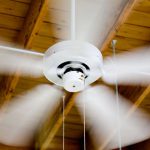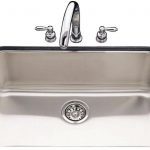Backup generators are a lifesaver for homeowners when the power goes out. Most heating systems require electricity to run blowers, pumps and other components even if the natural gas or propane supply is intact. A forced-air gas furnace is useless without electricity to run the blower, igniter and other elements.
Air conditioners also need electricity to make indoor temps bearable in the heat of summer. Generators not only keep the A/C going, they keep refrigerators running and the lights on. They come in all shapes and sizes, but they all have safety concerns that need to be heeded.
Cords and AC Switching
Most backup generators are connected to appliances and lights using extension cords. Some larger units are connected at the breaker box or transfer switch that powers only a few select circuits in homes that will not exceed their maximum amperage rating.
Extension cords have to be of the proper American Wire Gauge (AWG) to be safe. Electrical resistance in extension cords creates heat that could lead to fires. You don’t want to burn down the house just because the power is out. The smaller the AWG number, the bigger the copper conductors are in the cords. Use AWG cords rated for the appliances they will connect to or the amount of amperage cords are expected to handle. Longer cords require heavier conductors, as resistance is greater for each foot of cord in use.
Generators that connect at the breaker box need to use a switching system that prevents backfeeding electricity into the power grid. Power traveling out from the house into circuits that should be dead is a potential electrocution hazard. No one wants to accidentally electrocute an emergency services worker or utility company lineman. Also, transfer switches prevent heavy current-drawing appliances such as central air-conditioning systems or electric stoves from accidentally being turned on and attempting to draw power from generators that cannot handle such heavy loads.
Carbon Monoxide Risk
Most homeowners using backup generators want to keep them close to their homes for ease of refueling, discouraging theft and minimizing extension cord length. However, generators burn fossil fuels from gasoline to diesel to propane and therefore produce carbon monoxide (CO) gas as a byproduct of combustion. No homes are airtight, and CO gas can slowly infiltrate a home’s interior if generators are too close.
There is no odor, color or taste to CO gas, and it is deadly. Human red blood cells have 100 times the affinity to absorb CO than oxygen. A tiny amount robs the red blood cells of the ability to oxygenate tissue. Initial signs of CO poisoning are headache and fatigue, and sometimes victims demonstrate no symptoms before dying from it.
CO is not to be taken lightly. Never use backup generators in enclosed spaces such as basements or garages. Never use backup generators in partially enclosed spaces such as covered decks or garages with the garage door open. All exhaust gases from generators need to vent to the open air away from occupied structures. Downdrafts, temperature inversions and other weather phenomena can direct CO-containing exhaust gases into homes. Place backup generators away from occupied structures according to the manufacturer’s directions for safe use.
Generator Fuel Safety
Generators are available to operate on various fuels. Even portable backup generators are available in gasoline, propane, natural gas and diesel fuel models. Natural gas and propane models are either permanently connected to a fuel supply or they have a quick-connect hose or flexible pipe that is attached and turned on when the generator is needed. Permanently connected generators need fuel lines inspected regularly for corrosion, damage and leaks. Temporary connections need to be inspected before use and to make sure there are no leaks at the connection site. All generators using propane must be installed at the manufacturer’s recommended distance away from the propane supply tank.
Gasoline and diesel fuel must be stored in proper containers away from occupied structures and ignition sources. This includes appliances that have pilot lights or igniters such as hot water tanks and furnaces. Never fill a fuel tank on a generator that is in operation. Though you shouldn’t refuel a hot engine, people often risk it with small engine tools such as chainsaws. However, the safe route is to wait until the engine is cool before refueling to help prevent explosion and fire.
Keeping backup generators on hand for emergency use when the power grid goes down can mean the difference between enjoying the light and sitting in the dark. They can mean the difference between saving that freezer full of expensive meat and having to throw it out. On a hot day, they may mean the difference between roasting indoors and staying cool. They may mean the difference between frozen pipes and much-needed heat in the winter. Some generators may power medical appliances as well.
Though generators are useful and welcome tools when the power goes out, they must be stored and operated safely in order to prevent mishaps.
Post Author: andyc.



